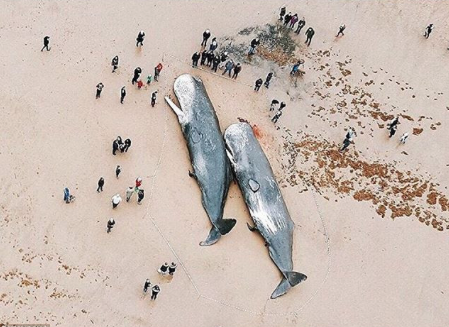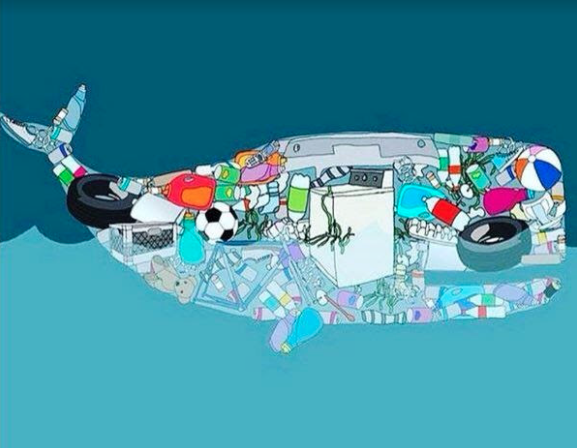Effects Of Marine Debris On Whales

As many of you have already seen on the news or read online, far more than thirty sperm whales have washed ashore in Europe since the beginning of last year. Four of the thirteen whales found in Germany were discovered to have large amounts of plastic waste in their stomachs. The marine debris included a fishing net, a plastic car engine cover, and part of a plastic bucket. Many toothed whales often mistake plastic and other marine debris as potential food or prey and most baleen whales unknowingly ingest plastic debris when they are feeding. Most of the plastic that ends up in the ocean floats and stays there for a long time. Plastic bags are known to stay in the oceans for about 450 years before beginning to degrade. “According to the Marine Pollution Bulletin, cetaceans are ingesting plastic debris at a rate as high at 31 percent, and in turn, 22 percent of those cetaceans were at an increased risk of death” (Henn 2017). The reason that the toothed or baleen whales ingesting so much marine debris can be fatal is because it can lead to physical damage to their digestive systems. The obstructions caused by the plastic or debris can lead to tears or punctures in the stomach lining. Also, the obstructions in the stomach can trick the whale into thinking that they are not hungry, messing with the feeding patterns of the whale and in turn leading to malnutrition.

Two whales washed up near the resort of Skegness on the English east coast on January 25, 2016.

There are many easy ways to help reduce the number of marine debris that ends up in our oceans and rivers. One of the easiest and most effective ways to help keep the oceans clean would be to recycle properly. Making sure that each plastic bag or bottle makes it to the recycling bin will not take much time out of your day. Also, reduction can play another big role in decreasing the amount of pollution in the sea. Using a reusable water bottle or reusable shopping bags can lessen the amount of plastic that will later end up in the oceans. Even just letting your friends and family about the effects of manmade pollution in the oceans can help because you are making them aware of our problem. Cape May Whale Watch and Research Center also does a great job informing the passengers on the boat by explaining to them what marine debris is and how it affects marine mammals. We also stop the vessel and pick up any plastic bags, rope, or balloons that we spot on the trip a part of our Clean Ocean Initiative. Make sure to always be aware of any pollution that you see and make efforts in reducing the amount that is brought into the oceans!
-Mary Jacketti
Intern at Cape May Whale Watch and Research Center, University of Miami
